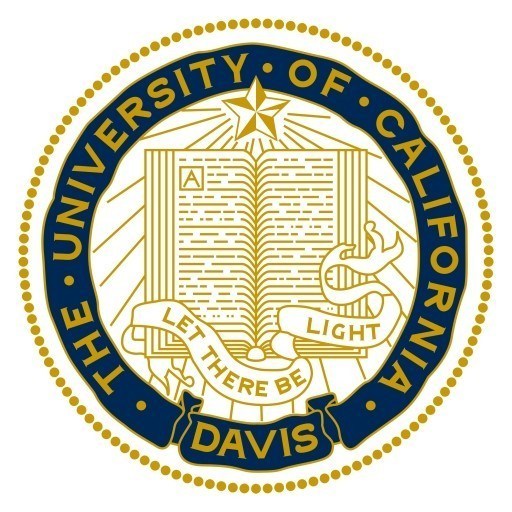Photos of university / #ucdavis
Students gain advanced knowledge of the nutrition, physiology, reproduction, pathology, toxicology, immunology, food science, management, ecology, genetics, incubation, environmental physiology, and developmental biology of wild and domesticated birds. Students graduate with the qualitative and quantitative skills necessary for professional research in the underlying principles of the biology of Aves derived from genetics, cell biology, physiology, behavior, medicine and environmental biology.
1) Avian Sciences 100, Avian Biology; or WFC 111, Biology and Conservation of Wild Birds and at least two quarters of AVS 290 or PHR 290.
2) Students in Plan II must complete 9 units of research under the guidance of a major professor. A written report of the research will be presented to the student's major professor for evaluation.
3) General avian biology. At least 6 units from the following courses (or their equivalents as approved by the Graduate Adviser):
- AVS 103 Avian Development & Genetics (3)
- AVS 115 Raptor Biology (3)
- AVS 121 Avian Reproduction (2)
- AVS 123 Management of Birds (3)
- AVS 149 Egg Production Management (2)
- AVS 150 Avian Nutrition (1)
- AVS 160 Experiments in Avian Sciences (2)
- AVS 170 Advanced Avian Biology (4)
- NPB 117 Avian Physiology (3)
- NPB 217 Advanced Animal Physiology (1)
- WFC 111L Laboratory in Biology and Conservation of Wild Birds (2)
- WFC 136 Ecology Waterfowl and Game Birds (3)
4) Area of emphasis. Student must choose one option and complete 6 Units of course work in that option (or equivalent as approved by the Graduate Adviser).
Avian Cell and Developmental Sciences. This specialization is intended for students with an interest in avian cells, development, incubation or tumor development.
Avian Organismal Sciences. This specialization is intended for students with interests in the whole animal organ system, e.g., physiology, genetics or animal breeding, nutrition, production, medicine.
Avian Environmental Sciences. This specialization is intended for students with an interest in the interactions between birds and the environment, e.g., ecology, environmental toxicology, environmental physiology.
Requirements
- Completion of a Bachelor of Sciences or Bachelor of Arts program with a GPA of 3.0 (4.0 = A) or better including coursework in chemistry (at least 15 quarter units), mathematics (at least 8 units), statistics (at least 3 units) and physiology (at least 3 units).
- Students may be admitted without 10 credits of the above requirements although these requirements must be completed as part of the coursework for the M.S. degree unless waived by the Executive Committee.
- The Graduate Record Examination (GRE) is required for admission of all students. TOEFL scores are required from foreign students.
- In addition to academic excellence, successful applicants will exhibit a desire and commitment to complete and satisfy degree requirements.
- Students whose undergraduate preparation has been in a language other than English must submit scores on the Test of English as a Foreign Language (TOEFL) administered by the Educational Testing Service. A minimum score of 80 on the TOEFL is required for admission.
- The application fee of $105 for Domestic students, or $125 for International Students, must be paid before an application will be evaluated. The fee may be paid by credit card or check or money order made out to "UC Regents" to Graduate Studies. The application fee must be paid for each application submitted.
- Three letters of Recommendation must be submitted electronically through the online application. Do not have recommenders send letters in hard copy; all letters need to be submitted online.
Scholarships
- University Fellowships
- Graduate Group Fellowships
- Teaching Assistantships (TA Appointments)
- Global Education
The Avian Sciences program at the University of California offers students a comprehensive education in the biology, behavior, physiology, and management of birds. This program is designed to prepare students for careers in research, industry, conservation, and academia by providing a solid foundation in avian biology and related disciplines. Students can expect coursework covering topics such as avian anatomy and physiology, migratory behavior, nutrition, reproduction, developmental biology, and disease management. The program emphasizes hands-on experience through laboratory work, field studies, and internships, allowing students to apply theoretical knowledge to practical situations. Graduates of the Avian Sciences program are equipped with skills needed to contribute to scientific understanding of bird populations, develop effective conservation strategies, improve poultry production, or pursue advanced research in ornithology and related fields. The program also fosters interdisciplinary collaboration, involving ecology, genetics, veterinary sciences, and environmental management, reflecting the complex nature of avian studies. Research opportunities at UC typically include participation in ongoing projects focused on migratory patterns, habitat conservation, avian diseases, and the impacts of climate change on bird populations. The university’s state-of-the-art facilities, such as research laboratories and observation stations, support students and faculty in their scientific endeavors. The program prepares students for various careers, including wildlife conservation agencies, zoos, research institutions, agricultural companies, and government agencies involved in environmental policy. Furthermore, students benefit from mentorship by experienced faculty who are leaders in avian research, and from a vibrant academic community dedicated to advancing knowledge about birds and their ecosystems. Whether aiming to work in the field or in laboratory settings, students graduate with a robust understanding of avian biology and the skills necessary for success in dynamic, multidisciplinary environments.









